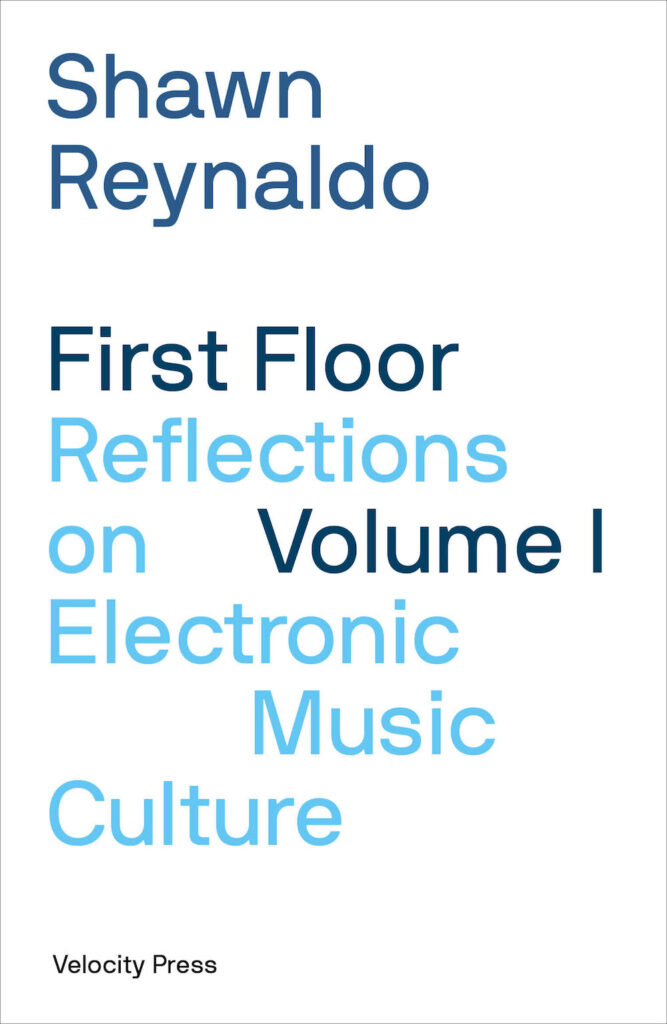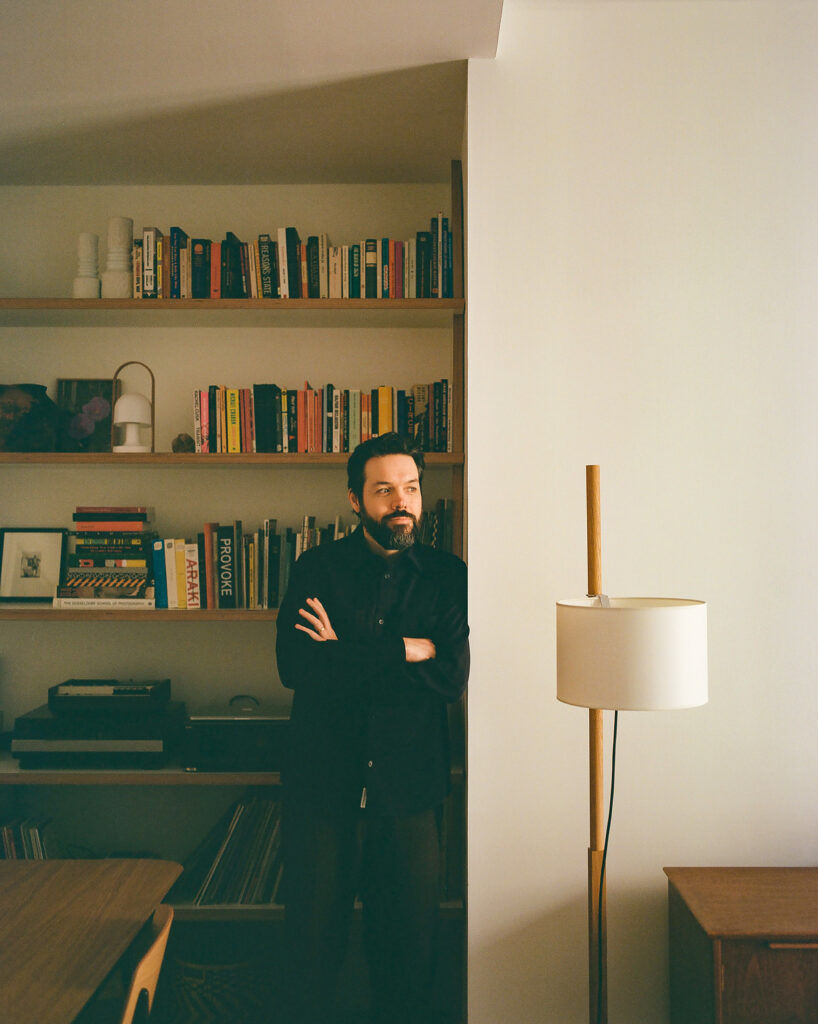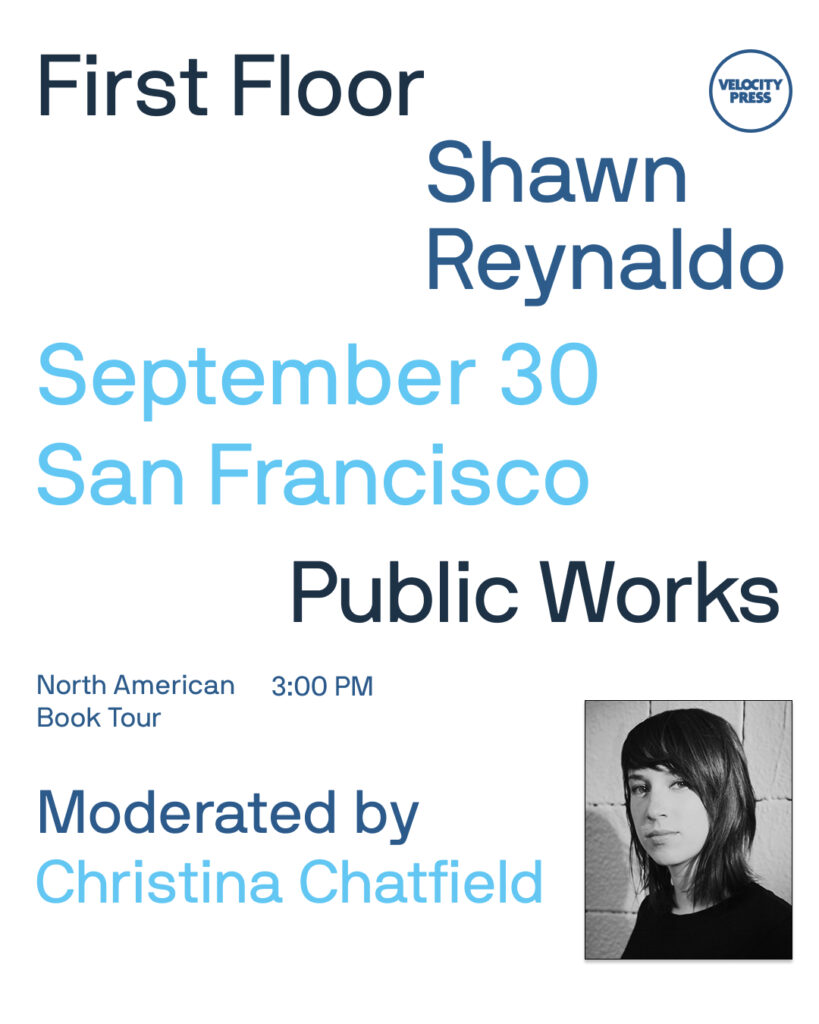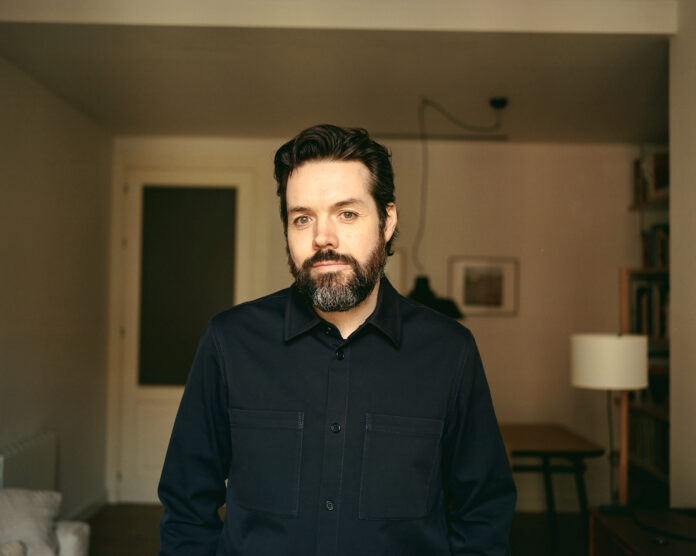At least since the 1990s, electronic dance music has been in a constant crisis of nostalgia. On the one hand it’s a matter of simple aging, an “old man yells at clouds” syndrome in which the scene was always better back in the day, kids these days don’t know real music, people are zombies on the dance floor, what are all those knobs for, etc, etc., ad naseum. On the other, more valiant hand, there are real archeological artifacts to bring to light showing how an essentially Black, queer art form was hijacked (and often almost destroyed) by straight white male corporate players. We’re still discovering stories of the women behind techno’s rise, its queer roots, forgotten Black innovators, even how the musical experimentation that helped eventually birth the scene was sometimes defined by gay infighting.
That’s all about then, but what about now? No one is currently documenting what the “industry” does, and what dance music feels like, right at this moment more candidly and in-depth than independent journalist (and former SF DJ and party promoter) Shawn Reynaldo in his First Floor newsletter.
With missives like “Electronic Music is Getting Old,” “The Dwindling Power of the Online DJ Mix,” “Wrestling with Pop Embarrassment,” “Pull Your Music off Spotify,” “That Album You Made Might Have Been a Giant Waste of Time,” and, a favorite, “Skrillex is Green Day and This is Dance Music’s American Idiot Moment,” Reynaldo takes an often scalding, always bracingly immersive look at where things are landing on the globalized cultural dance floor at this very moment in time. Research, statistics, quotes from experts and major (and should-be-major) players all figure heavily in First Floor—as well as joy in the music and scene itself, with music news, favorite new track recommendations, and fascinating interviews.
Now, Reynaldo has expanded and compiled some of his most provocative newsletter essays into a handsome book, First Floor: Reflections on Electronic Music Culture, Vol. 1 (Velocity Press)—he’s appearing Sat/30, 3pm-6pm at Public Works, SF to sign books and speak with local techno luminary Christina Chatfield about his work. The event will be a lovely homecoming—Reynaldo has lived in Barcelona for several years, and Public Works is the scene of some of his most infamous parties, including an epic 28-hour farewell for his rave-centric throwdown Icee Hot in 2015, that stands as one of the SF scene’s most audacious achievements.

Reynaldo is also a well-established music press journalist and editor—he knows what he’s talking about in an essay like “The Crumbling Palaces of Electronic Music Media”—who first hired me at XLR8R to write about the queer scene, and who I later worked with at Red Bull Music Academy before its sad and sudden demise. I spoke with him about his project and its implications over email in the very wee hours of the night, as it should be.
48 HILLS Leaping in with a big one here: Why did you write a book? As a collection of some of your most thought-provoking and salient newsletter essays, it’s obviously quite valuable for people who like to read books about music, or like to hold objects in their hand—but as someone who already speaks to a large audience via newsletter, the idea of a book seems a bit outdated? At least nostalgic. Did the “book platform” offer different opportunities, or a form of legitimization that still seems valuable in our Internet World?
SHAWN REYNALDO In all honesty, doing a book wasn’t my idea, nor was it something I necessarily had on my career wishlist. My publisher Velocity Press actually first reached out to me a few years ago, saying they liked my writing and asking if I had any ideas for a book, to which I replied, “Thank you so much, but no I don’t.” Late last year, however, they approached me a second time, asking what I thought about compiling some of my newsletter pieces into a book, and that piqued my interest, both because most of the content had be written already and also because it felt like a nice way to commemorate all the work I’d been doing with First Floor since it started in late 2019. The past few years have been pretty tumultuous in electronic music, and not just because of the pandemic, so capturing that period of time more formally felt like a worthy endeavor.
There was also a practical element to it. As anyone who’s subscribed to the newsletter already knows, I publish a lot of words every week, and I was well aware that even the most dedicated First Floor followers had probably missed at least a few of the essays I’d written. I also knew that not everyone had been on board since day one, so putting things into a book offered a more coherent way for newer First Floor readers to get caught up without having dig through the online archives. On a narrative level, doing a book allowed me to group together pieces that traversed similar ground, even if they’d been published years apart, so I was able to weave together a kind of narrative, one which also gives readers a chance to see how some of my thoughts and observations have evolved over time. (After all, nothing stays the same for very long in electronic music.)
The most interesting thing about releasing the book has been seeing just how ingrained our collective sense of what I’ve been calling “format sentimentality” can be, even amongst people who consider themselves futurists and forward thinkers. When words are in print and placed into a book, we seemingly can’t help ourselves—the work immediately feels more important somehow. I suppose a similar phenomenon happens with releasing music on vinyl; it doesn’t matter that the vast majority of consumers do the bulk of their listening via streaming; when something is on wax, it feels more permanent and more weighty. The physical object provides a chance for connection that’s hard to achieve with content that only exists online, no matter how erudite or engaging it may be.
48 HILLS I knew you first as a DJ, then quite quickly after that as a writer and editor (thank you for hiring me!) But primarily as a DJ bringing very cutting edge tunes and artists to San Francisco via the Icee Hot and Tormenta Tropical parties, among others. (Since this is your “rave hometown,” I’m going to have to bring up the fact that your presence was so momentous that SF Weekly even published an item when you killed off your former DJ persona as you developed as an artist.) What DJ skills and promoter experiences do you find help you most in writing First Floor? Obviously you know a good tune when you hear one, and exposure to the behind-the-scene industry helps you in turn expose its workings …
SHAWN REYNALDO One thing that really shapes my writing (and my general worldview when it comes to electronic music) is that I’ve been immersed in the genre since I was still a teenager, and during the past 20+ years, I’ve taken part in nearly every facet of the community and industry behind the music.
Although most people know me these days as a music journalist, I’ve been a DJ (both in the club and on the radio), I’ve done a bit of touring, I’ve thrown parties, I’ve run record labels, I’ve managed radio stations (shout out to KALX in Berkeley) and through all of that, I’ve picked up a thorough understanding of how things work. I’ve dealt with shady promoters, picked artists up at the airport, negotiated contracts with booking agents, set up press campaigns… I could go on forever, but what matters is that I haven’t just been sitting on the sidelines, casually tossing out opinions about what I do or don’t like. Forming and sharing opinions is of course part of my job as a journalist, particularly when it comes to things like reviewing albums and recommending music, but when I write about systemic changes in the culture and industry, it comes from a place of experience, and a passion that’s lasted long enough for me to see multiple generations of club kids—and clubbing norms—come and go.
48 HILLS Building on that, one of the most refreshing things I think First Floor has brought to electronic music journalism is a candidness that probably could not have existed in the “old school” electronic music media. You’ve written frankly and in-depth about things like income inequality, oversaturation, exploitation, compilation fatigue, DJ career unsustainability, etc that I just feel I would not have read five, 10 years ago. And even though you’ve expanded on some of these things for major industry outlets—like your tremendous breakdown of streaming service payments for DJ Mag—it’s obvious, at least to me as someone who runs a similar independent media project, that the newsletter format and reader support has given you that freedom.
As First Floor has become more essential to the scene, and as newsletters have become more standard (and Substack has shown its evil side) have you felt any pressure around the content you produce, in terms of needing to still make a living off of it? Are you fending off sponsors or labels trying to get you to write about things in a certain way? Is there a First Floor to be written about the newsletter-journalism medium?

SHAWN REYNALDO Thankfully I think I’ve established myself as someone with an independent voice, so it’s not often that brands, artists, labels or really anyone is coming to me with an expectation that I’m going to say or do anything that I’m not 100% behind.
That said, I of course still get pitched all kinds of ideas, and that’s only increased as First Floor has grown in stature, but it just means that I have to say “no” more often. It’s bizarre to think that the media landscape has gotten to a point where someone assembling a major album campaign will pitch a niche newsletter in hopes of coverage, but there just aren’t that many publications left, and the ones that are still out there are increasingly reliant on things like brand partnerships, which has severely compromised both the quality of their work and their integrity with readers. There’s a sense out there that everything covered in the press has been bought and paid for, and while that’s not actually true, it’s true enough to have undermined the legitimacy of music journalism as a whole, and that’s really unfortunate.
With First Floor, I’m thankfully spared some of that; there are no ads, no sponsors and I think it’s pretty clear that I’m writing about whatever I want, but I’m also reluctant to hold up newsletters as the savior of anything. I was luckily enough to already be an established journalist when I launched the newsletter (even the name “First Floor” had previously existed as a radio show for several years), so I wasn’t starting completely from zero. Even then, building a paying audience has been extremely difficult and time-consuming. We’ve sadly gotten to a place where most people just don’t want to pay for media, and will continue to consume low-quality free stuff rather than paying for better work that they legitimately find more rewarding.
First Floor is one of the top music-focused newsletters on the entire Substack platform, and yet I’m still at a point where less than 10% of my total subscriber base is opting for a paid subscription. Thankfully that’s enough for me to eke out a modest living—being based in Barcelona, as opposed to an ultra-expensive hub like San Francisco, certainly helps on that front—but I wouldn’t tout what I’ve done as an easily repeatable model for anyone, and on macro level, it’s definitely not a model that could sustain a proper media ecosystem.
48 HILLS Something I truly love about First Floor is how you wrestle with your own evolving tastes in a scene that can seem both rapidly changing and stultifyingly conformist, something that’s so relatable as both we and the music grow older. (Indeed, at the start of the book is the provocative essay-chapter “Electronic Music is Getting Old.”) For example: your very honest grappling with the contemporary role of pop music in techno and how, gasp, you’ve come to even like pop as someone from a generation that thought selling out meant instant death, made me stand up and cheer, as did your spot-on comparison of Skrillex with Green Day, in terms of your gut reaction to the music, and then your reappraisal in terms the arcs of their output. What’s on your mind right now, or what are you thinking a lot about lately, in terms of how you feel about techno?
SHAWN REYNALDO Techno—and dance music in general—has never been a static genre, especially given the constantly high levels of turnover in nightlife, but the pandemic really did create a unique “before and after” divide in the culture, shining a bright light on some drastic changes that would have otherwise occurred more gradually. The past few years has seen a real generational shift, and the fact that COVID inadvertently pushed a lot of veteran clubgoers into a sort of “early retirement” from nightlife left a gaping void, which new arrivals have gladly filled, bringing their own ideas about how the culture should proceed. A lot of those ideas have caused consternation among those of us who remember the “before” times, whether that’s Skrillex getting booked at Berghain or Britney Spears remixes and Vengaboys tracks being rinsed by supposedly tastemaker-approved DJs.
Throw in the rise of social media and streaming video, and a culture that once operated almost entirely off the grid can now sometimes feel like an extension of the influencer economy. I don’t like these things myself, but at the same time, if I just get angry and slip into a constant stream of “these kids are doing it wrong,” then I’ll have ceased to be a useful contributor to the culture. So I’ve spent a lot of time during the past few years separating what I personally like in dance music from what I think is creatively and culturally interesting. That means asking a lot of questions. Why are DJs playing these pop edits, and what does it say about how music consumption has changed in the streaming era? Is there something subversive about bringing commercial sounds that “cool” people once scoffed at into rigidly “underground” spaces? How does the decline of music media and other “gatekeeping” institutions factor into this? So much of what’s happening in dance music stems from systemic changes in society, media, and technology, and I’m really fascinated by connecting the dots and tracing how all these things are interconnected, even when the actual music involved sometimes makes me cringe.

48 HILLS You talk about the Black origins of techno in several parts of the book. As non-Black writers covering a Black musical form, how do you feel we should acknowledge our debt to Black artists (and writers) and help pave the way for equity and reparations within the industry?
SHAWN REYNALDO The most important thing that journalists can do is continue to repeat the stories (and uncover new ones) about the Black, brown and queer origins of this music. I have to admit, there have definitely been times in my career where I’ve seen the 1000th article about the Belleville Three and have thought, “Do we really need to tell this story AGAIN?” But the answer is, “YES! Absolutely.” The canon might be familiar to those of us in the know, but we’re the minority, especially in places like the US, which has never properly celebrated this music that came out of its own communities.
It’s insane that dance music is still perceived as a European phenomenon by so many Americans, but that notion has been enforced for decades; there was the “electronica” boom of the late ’90s and EDM a decade later, and even now, most of the world’s biggest DJs and electronic music artists continue to be white Europeans. Obviously there’s no turning back the clock on what’s become a global culture, and the contributions places outside of the US have made to the music can’t (and shouldn’t) be discounted, but considering the worldwide impact of house and techno, it’s ridiculous that people like Jeff Mills and Frankie Knuckles aren’t celebrated with the same institutional reverence as the founding figures of genres like jazz, hip-hop, and even rock music.
Of course this shouldn’t be a wholly historical exercise either, and I do think that journalists need to make an effort to consider diversity and representation when it comes to the curation of their content. It’s tricky, because that can easily fall into pandering, and there’s a lot of content out there that feels like it’s a byproduct of someone ticking a box on their diversity checklist. At the same time, journalists can make an effort to go beyond whatever is most easily accessible; systemic inequality manifests in so many ways, including basic things like “who has the resources to pay for a PR campaign” or “who has the social connections to be platformed by an influential venue/festival/label.”
It’s our responsibility as journalists to go deeper, whether that’s poking around on Bandcamp or simply taking a look at what’s happening outside of dance music’s trendiest circuits, There’s a big world out there, and most of it has some kind of dance music going on, so the idea that only privileged artists in London, Berlin and New York deserve our attention is something that should be cast aside for good.
48 HILLS OK leaving on a fun (I hope) note here: How is a book tour like a DJ tour? That sounds like I’m about to deliver a punchline, but I’m genuinely curious! How has the reception been so far?
SHAWN REYNALDO I honestly had no idea what to expect from a book tour, and when I set out across the UK and Europe a few months back, I was pleasantly surprised to see that people showed up! More than that, they were genuinely interested in what I had to say, and happily bought the book too. (We literally sold out of copies at several stops on the tour.) Without exaggerating, it was a life-affirming experience, and after years of writing the newsletter by myself at home in Barcelona, it was incredible to make some IRL connections and meet people who genuinely appreciate the work I’ve been doing. That’s why I decided to put together this US tour. It wasn’t initially part of the plan, but after seeing the enthusiastic response to my first go-round (and the book in general), I figured it made sense to come to the US, where I’m obviously from and where many First Floor readers reside.
As far as comparing it to DJ tour, it’s certainly less luxurious—carting around books is even worse than vinyl—and my fees (which are often zero) are notably less than those paid to DJs, but I honestly can’t complain. Especially after the isolation of the pandemic, which is when First Floor really took shape and began to become a fully recognized “thing” within the electronic music sphere, I’m so happy to have the chance to hop around the globe and have some face-to-face interactions about something that I’m truly passionate about. And speaking of passion—the chance to eat all the delicious food I’ve been missing is also a major bonus.
FIRST FLOOR BOOK SIGNING AND TALK with author Shawn Reynaldo, Sat/30, 3pm-6pm at Public Works, SF. More info here.





